Within Pakistan’s rich cultural and historical context, furthermore, educational institutions stand as key contributors to intellectual development. Acknowledging the significant impact of education on societal advancement, thus, thoughtful students frequently seek counsel in choosing a university aligned with their academic goals. This discussion delves into an exploration of the top 10 universities in Pakistan, meanwhile, each distinguished by its academic excellence, research endeavors, and unwavering dedication to nurturing intellectual growth.
Additionally, it is noteworthy that Pakistani alumni have attained commendable recognition on the global stage. Demonstrating proficiency across diverse fields, these individuals exemplify the far-reaching impact of Pakistani higher education. Consequently, this phenomenon underscores the qualitative contributions of these universities, positioning them not only as national but also as international hubs for cultivating talent.
Following are the Top 10 Universities In Pakistan:
1. Quaid-i-Azam University
Quaid-i-Azam University (QAU), formerly known as the University of Islamabad, stands as a testament to Pakistan’s commitment to educational excellence. Established on July 22, 1967, with a focus on postgraduate education, it evolved into an interdisciplinary institution in 1973, offering both undergraduate and postgraduate programs. The university, situated in the picturesque Islamabad, holds a sprawling urban campus encompassing 1700 acres.
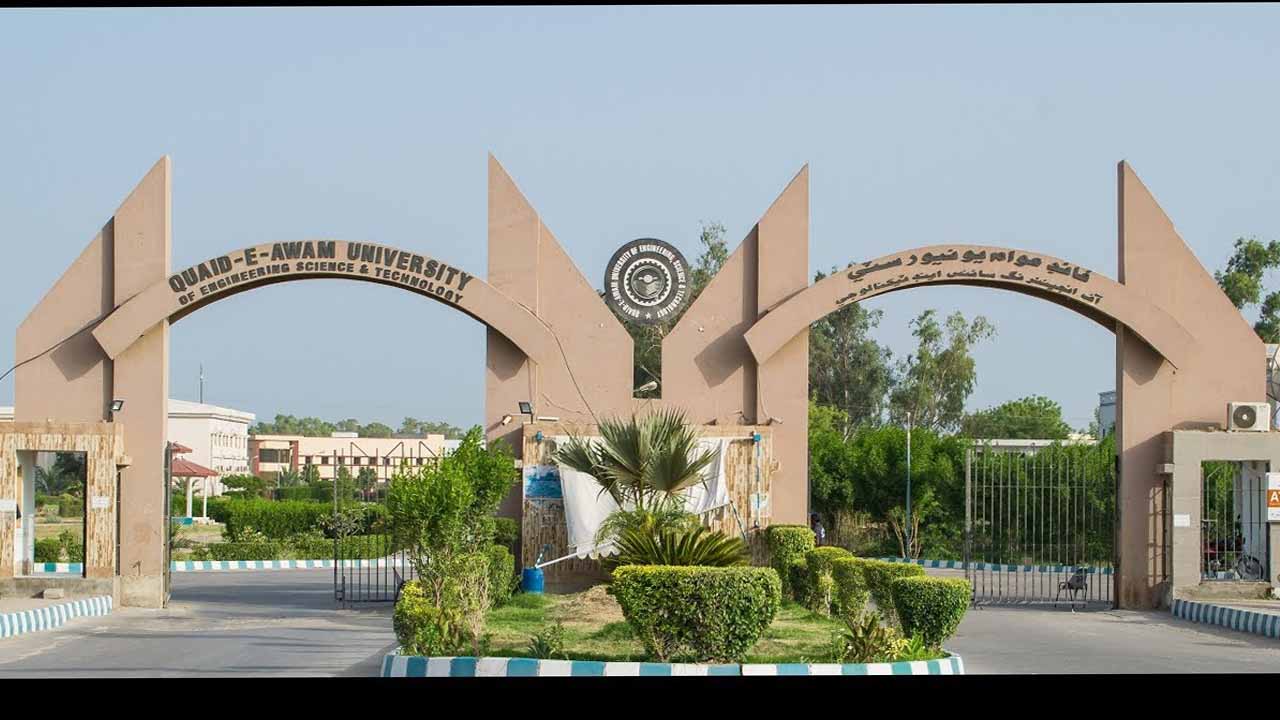
QAU has grown to become Islamabad’s largest university, boasting a robust enrollment exceeding 13,000 students. It comprises four faculties and nine affiliated research institutes, contributing significantly to its status as one of Pakistan’s largest and highest-ranked public universities.
Academic Achievements and Global Recognition
- QAU’s commitment to academic excellence is reflected in its global rankings.
- In the QS ranking of 2024, it secured the 315th position globally.
- The Physics department achieved a ranking between 201-250, while the Mathematics department and Agriculture department secured positions between 150-200 and 201-250, respectively.
- In Emerging Economics, QAU stands at 401-450, and it holds the 86th position in Asia.
This global recognition underscores the university’s prowess in various fields, making it a cornerstone of Pakistan’s educational landscape. QAU maintains intellectual partnerships with international institutes, including the United Nations, University of Tokyo, and the ICTP, fostering a rich academic environment.
Diverse faculties and departments
QAU’s faculties span Natural Sciences, Social Sciences, Biological Sciences, and Medical Science. Under these faculties, various departments, institutes, and schools operate, contributing to the university’s interdisciplinary approach.
Notable alumni
Notable alumni from QAU include figures like Shamshad Akhtar, Maliha Lodhi, and Hamza Ali Abbasi, who have achieved distinction in fields ranging from diplomacy to entertainment. These success stories highlight the university’s role in shaping individuals who make significant contributions globally.



Rankings and Reputation
QAU’s consistent high rankings, both nationally and globally, affirm its status as a premier institution.
- The QS World University Rankings of 2022 positioned QAU at 378 globally and 91 in Asia.
- In the general category, it holds the top rank according to the 2019 ranking of the Higher Education Commission of Pakistan.
2. National University of Sciences & Technology
The National University of Sciences & Technology (NUST) is a prominent public research university in Islamabad, Pakistan. Established in 1991, subsequently NUST has evolved into a leading institution, offering a diverse range of undergraduate and graduate programs, including doctoral and professional degrees. The university’s commitment to providing quality technical education aligns with its initial purpose of training commissioned officers by merging engineering colleges and schools. NUST has since transformed into a comprehensive research university with a main campus in Islamabad, contributing significantly to the advancement of science and technology in Pakistan.
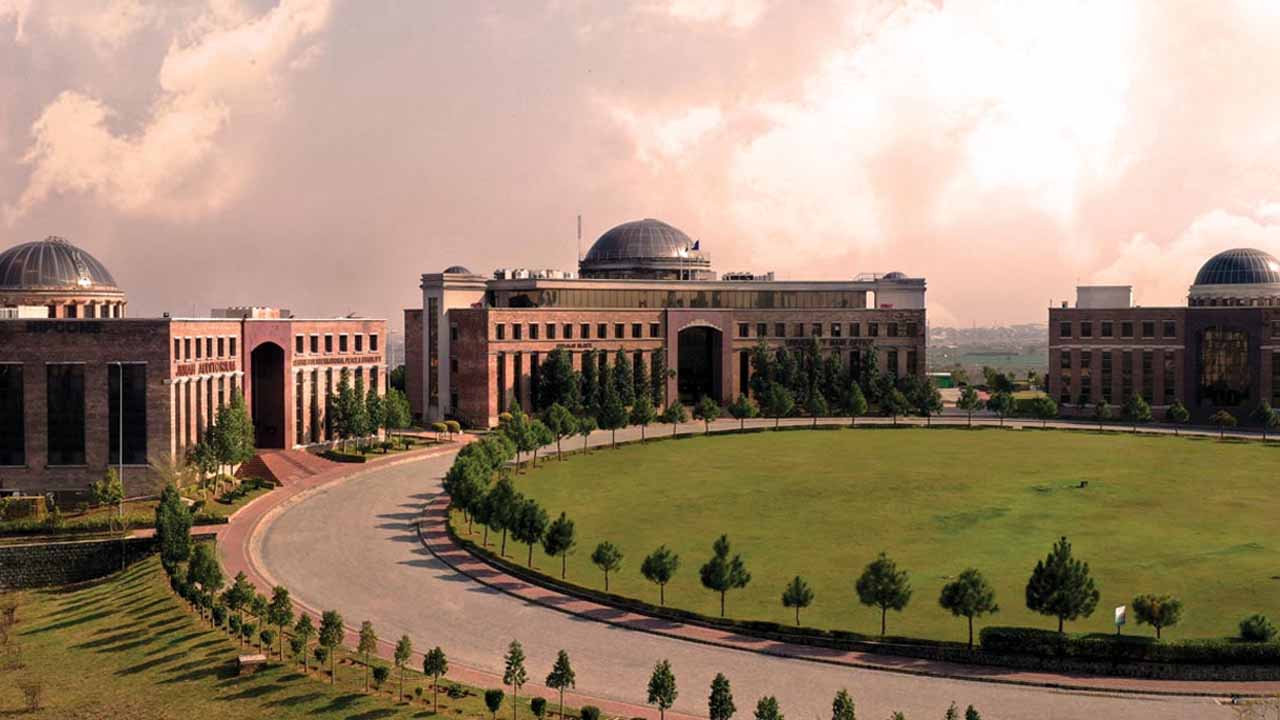
Recognition:
- NUST boasts a diverse student body, with over 15,000 full-time students and a faculty of over 1,280 academic staff.
- The university’s commitment to academic quality is evident in its global rankings, being recognized as one of the top 334 universities worldwide by QS.
- NUST holds the top position among Pakistani universities according to the QS World Ranking 2021 and is acknowledged for excellence in Electrical Engineering, Business Studies, and Mathematics.
National Science and Technology Park (NSTP):
The NUST campus in Islamabad is also home to the National Science and Technology Park (NSTP), inaugurated in December 2019. The park aims to foster innovation and entrepreneurship, particularly in the high-tech sector, and offers subsidized office space, research and development resources, networking opportunities, and business development support.
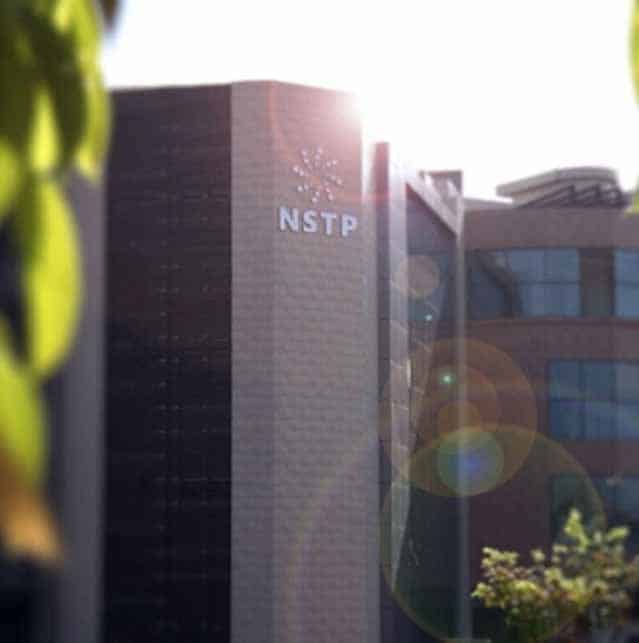
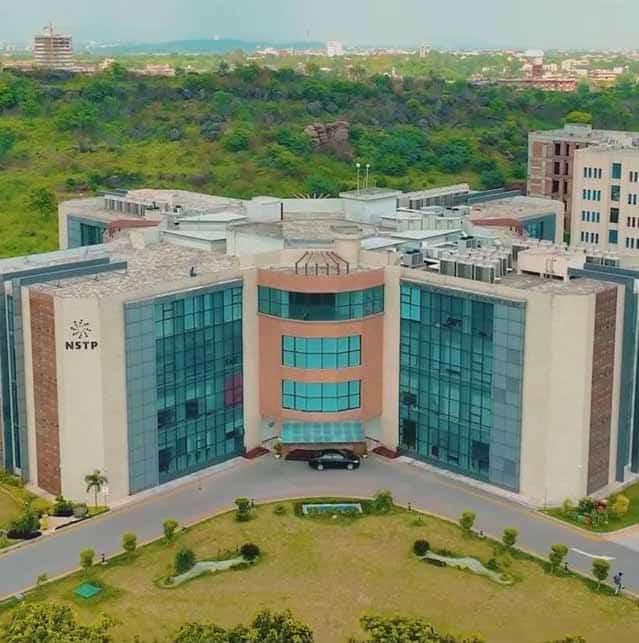
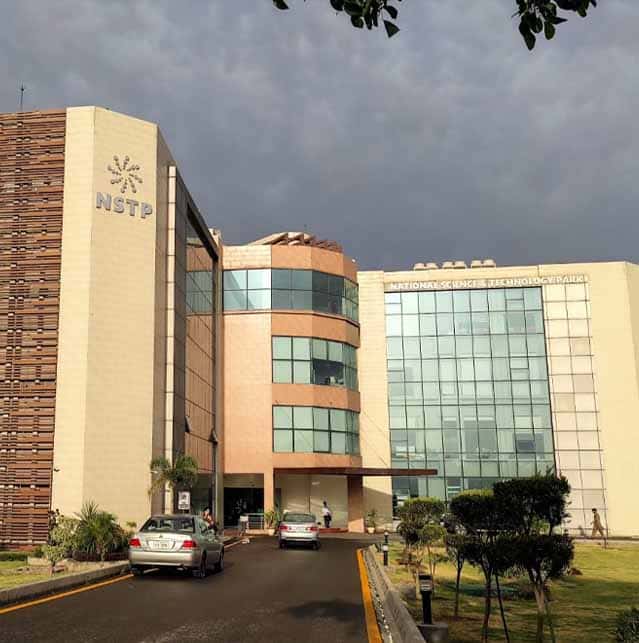
International Collaborations:
NUST has established collaborations with prestigious international universities, including Stanford University, University of Michigan, and the California Institute of Technology. These partnerships facilitate a two-way flow of knowledge, contributing to NUST’s global recognition.
Research and Development:
NUST emphasizes research and development through its dedicated Directorate, coordinating efforts across constituent colleges. The university collaborates with international agencies such as USAID, British Council, and German Academic Exchange Service (DAAD) to enhance research capabilities.
3. Lahore University of Management Sciences
Founded in 1985 by Syed Babar Ali, LUMS has emerged as a leading private research university in Lahore, Punjab, Pakistan. The institution was established to address the dearth of qualified managers in the country. Over the years, LUMS has expanded its academic offerings through five schools: Suleman Dawood School of Business, Mushtaq Ahmad Gurmani School of Humanities and Social Sciences, Syed Babar Ali School of Science and Engineering, Shaikh Ahmad Hassan School of Law, and LUMS School of Education, providing a diverse range of 18 undergraduate majors and 24 graduate degrees.
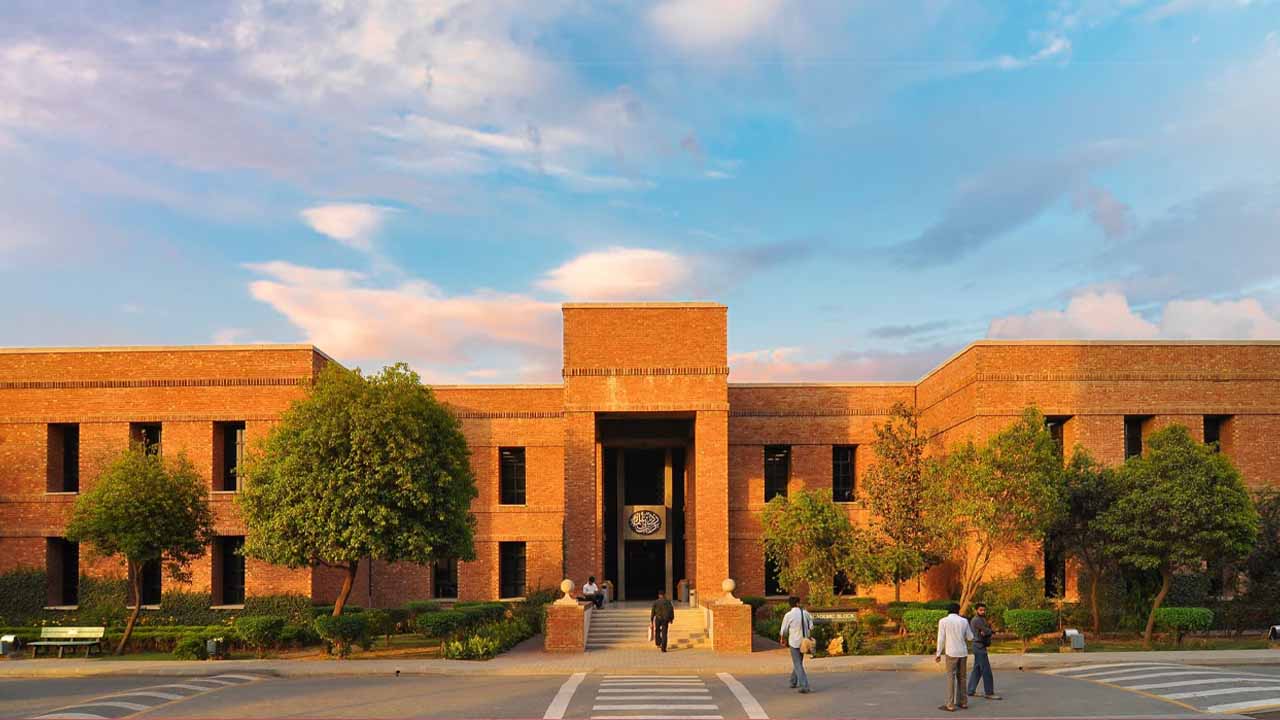
Campus and Accreditation
LUMS boasts a modern urban campus spread over 100 acres, equipped with state-of-the-art infrastructure. Its business school is accredited by the Association to Advance Collegiate Schools of Business (AACSB), and the university is recognized globally for its academic excellence.
Financial Aid and Accessibility
Financial aid and scholarships are integral to LUMS’s commitment to accessibility. The National Outreach Programme (NOP), initiated in 2001, focuses on providing financial aid to bright students from underprivileged areas. The university has disbursed over PKR 3.2 billion in financial assistance, reflecting its dedication to inclusive education.
Rankings and Global Recognition
In terms of rankings, LUMS consistently stands out.
- According to the QS University Rankings, it secured the top position in Pakistan in 2016, ranked 111th in Asia, and was among the top 700 globally.
- The LUMS School of Business has been recognized among the world’s top 250 by QS, and the university holds accreditation from AACSB.
Distinguished Alumni
LUMS takes pride in its distinguished alumni, a testament to the institution’s impact across various fields. Notable alumni include:
- Hina Rabbani Khar: Former Foreign Minister of Pakistan.
- Umar Saif: Former Chairman of PITB Punjab.
- Bilal Khan: Renowned Singer.
- Ismat Beg: Mathematician.
- Afia Nathaniel: Film Director.
- Bilal Lashari: Film Director.
- Cyril Almeida: Rhodes Scholar and Assistant Editor of Dawn.
- Gul Bukhari: Pakistani Journalist.



Research Excellence
LUMS takes pride in its research endeavors. The Office of Sponsored Programmes and Research (OSPR) promotes research across disciplines. The Suleman Dawood School of Business has produced over 600 case studies, earning international recognition. In addition, The LUMS School of Science and Engineering has made notable contributions to various fields, including biomechanics, where its lab is the sixth International Cricket Council (ICC)-accredited cricket lab globally.
4. Ghulam Ishaq Khan Institute of Engineering Sciences and Technology
Located in Topi, Khyber Pakhtunkhwa, the Ghulam Ishaq Khan Institute of Engineering Sciences and Technology (GIKI) is a private research university established in 1993 by former President Ghulam Ishaq Khan. Situated near the Swabi District, renowned for its focus on science and engineering education, the institute has a sprawling 400-acre campus. Moreover, it is known as GIKI.
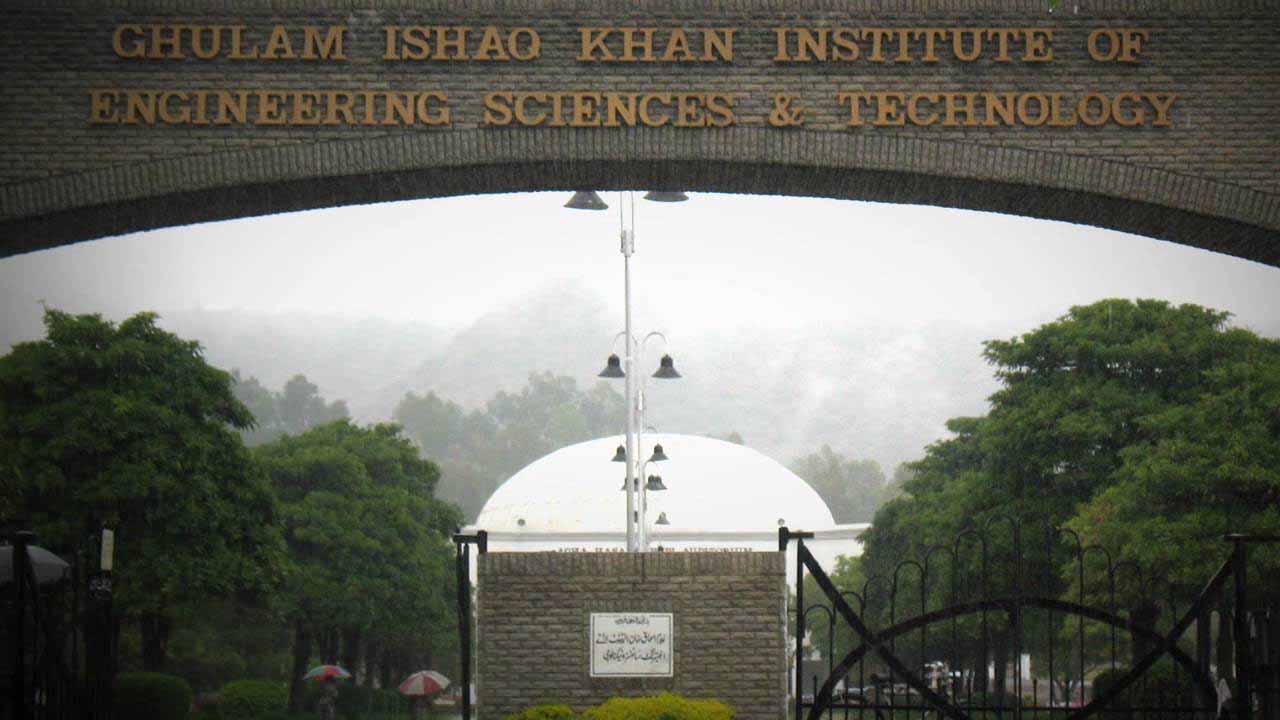
Academic Excellence:
GIKI has consistently attracted influential scientists such as Abdul Qadeer Khan, Asghar Qadir, and Shaukat Hameed Khan, solidifying its reputation as one of the world’s finest science and engineering colleges. Moreover, the institute boasts a competitive environment, reflected in its low acceptance rate, requiring students to demonstrate exceptional academic prowess and financial stability.
Campus and Landmarks:
Situated in the scenic mountains of Tarbela and Gadoon-Amazai, GIKI’s campus features notable landmarks like the Clock Tower, a symbol visible from miles away. The Agha Hasan Abedi Auditorium serves as a central hub for conferences, seminars, and cultural events.
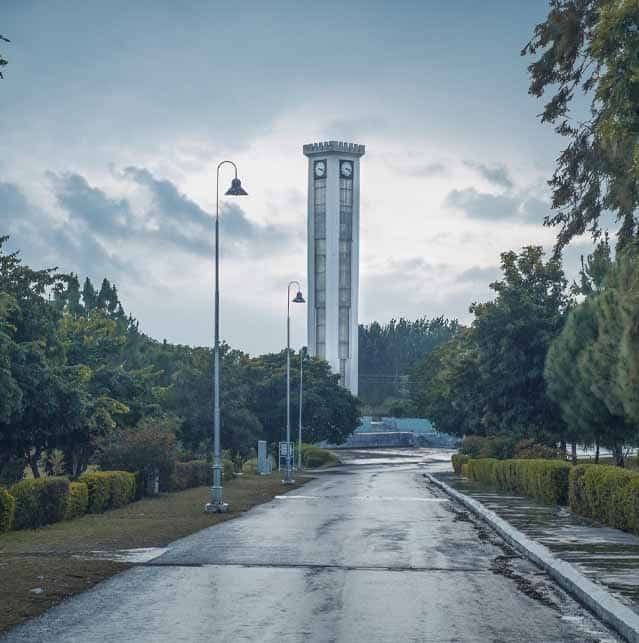
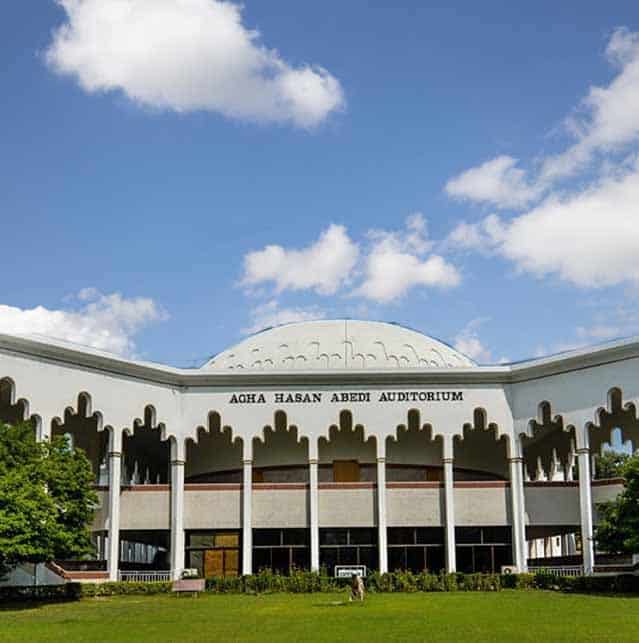
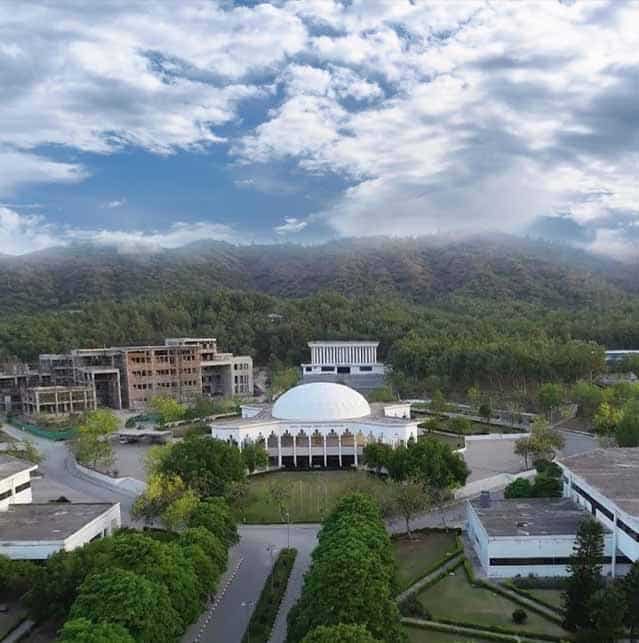
Academic Programs:
GIKI offers a range of programs through its faculties, including Engineering Sciences, Computer Science and Electrical Engineering, Mechanical Engineering, Materials and Chemical Engineering, Civil Engineering, and Management Sciences and Humanities. The institute continually updates its curriculum to align with industry demands.
Rankings and Recognition:
- GIKI consistently earns acclaim, ranking as the top engineering institution in Pakistan and 30th globally for Quality Education.
- It holds a prominent position in various international rankings, including The Times Higher Education World University Impact Rankings 2021.
Alumni Achievements:
Notable GIKI alumni include Yarjan Abdul Samad (Pakistani space scientist at the University of Cambridge), Taimur Khan Jhagra (Provincial Minister of Finance), Muhammad Hamza Shafqaat (Former Deputy Commissioner Islamabad), and Wardah Inam (Cofounder and CEO of Overjet).



Student Life and Societies:
The institute fosters a vibrant student life with various societies and clubs catering to both technical and non-technical interests. The GIKI WebTeam, Team Invictus, and sports activities contribute to a holistic student experience.
Labs and Facilities:
GIKI’s state-of-the-art facilities include the High-Performance Computing Cluster, providing a cutting-edge platform for research. The Catalyst Incubator encourages entrepreneurship among students, supported by funding from the Directorate of Science and Technology.
5. University of the Punjab
Established in 1882, the University of the Punjab, often referred to as Punjab University, stands as Pakistan’s oldest and largest public research university. Situated in Lahore, Punjab, it boasts a rich history and multiple campuses in Gujranwala, Jhelum, and Khanspur.
Academic Prestige:
With a student body of 45,678, Punjab University comprises 13 faculties housing 83 academic departments, research centers, and institutes. Recognized for its academic prowess, it secured the top spot among large-sized multiple-faculty universities by the Higher Education Commission (HEC) in 2012.
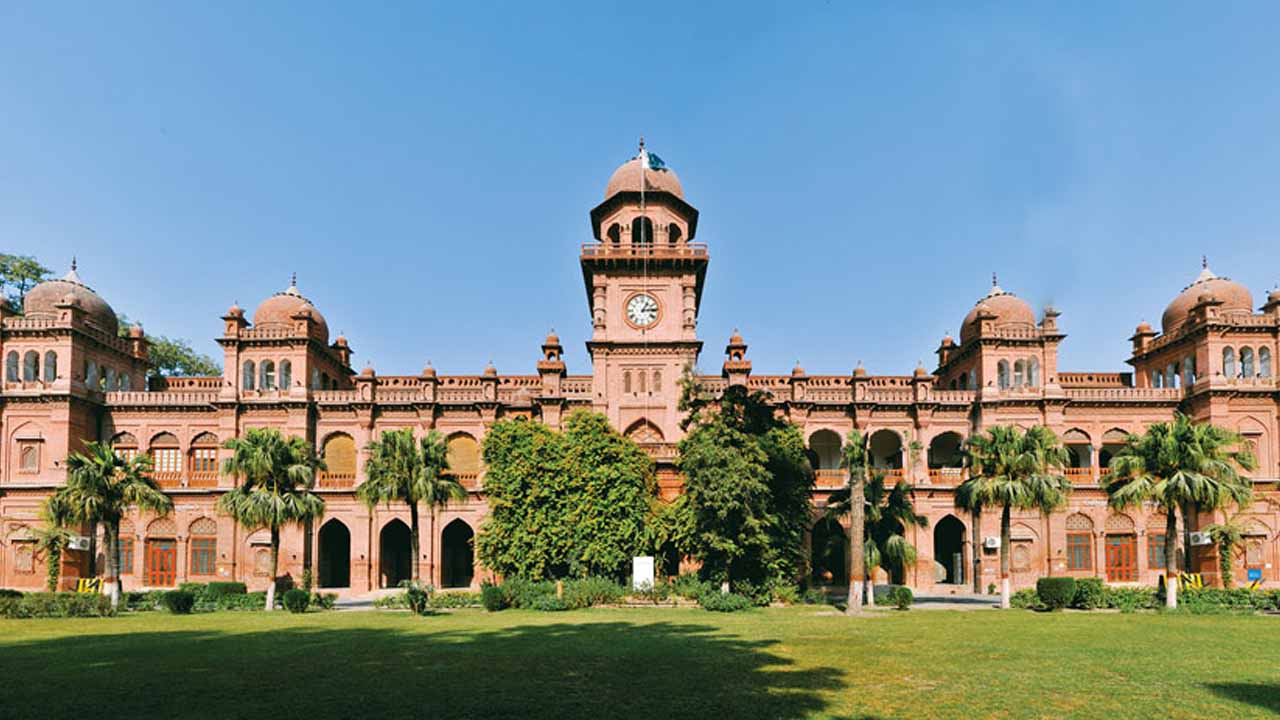
Global Recognition and Rankings:
- Punjab University holds global acclaim, ranking 741-750 in the QS World University Rankings for 2024.
- Regionally, it stands at 140 in the QS Asia Rankings.
- Notably, the university has climbed 41 places in the QS World University Rankings, emphasizing its commitment to academic excellence.
Academic Structure:
Punjab University encompasses 19 faculties, 10 constituent colleges, and a myriad of departments, centers, and institutes. With over 6,000 faculty members, both full-time and part-time, it offers a broad spectrum of programs across disciplines.
Library Facilities:
Boasting one of Pakistan’s largest libraries, Punjab University’s library houses over 500,000 resources in various formats. The library’s expansive collection, including books, periodicals, and multimedia, serves as a vital academic resource for students and faculty.
Notable Alumni:
The University of the Punjab boasts a prestigious alumni roster featuring Nobel laureates Har Gobind Khorana. Additionally, influential figures like Choudhry Rahmat Ali and Asma Jahangir in the realms of the Pakistan Movement and human rights advocacy, respectively. Moreover, Islamic scholar Muhammad Tahir Ul Qadri and Kashmiri-separatist leader Syed Ali Shah Geelani further contribute to the university’s diverse and impactful alumni network.
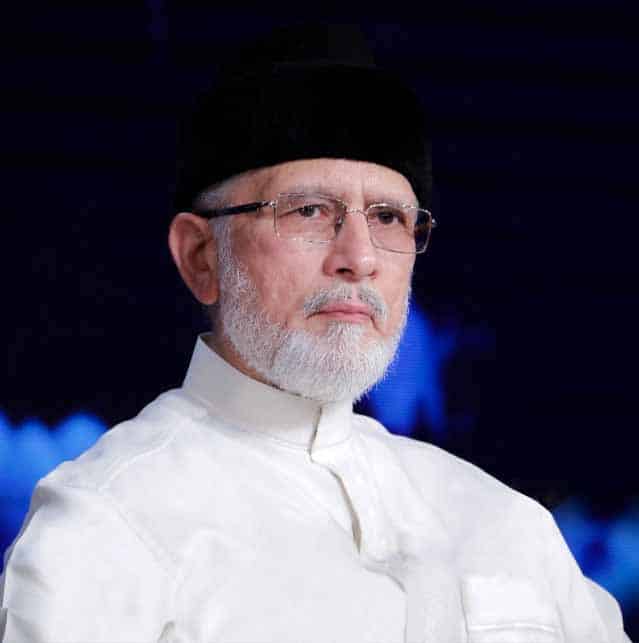
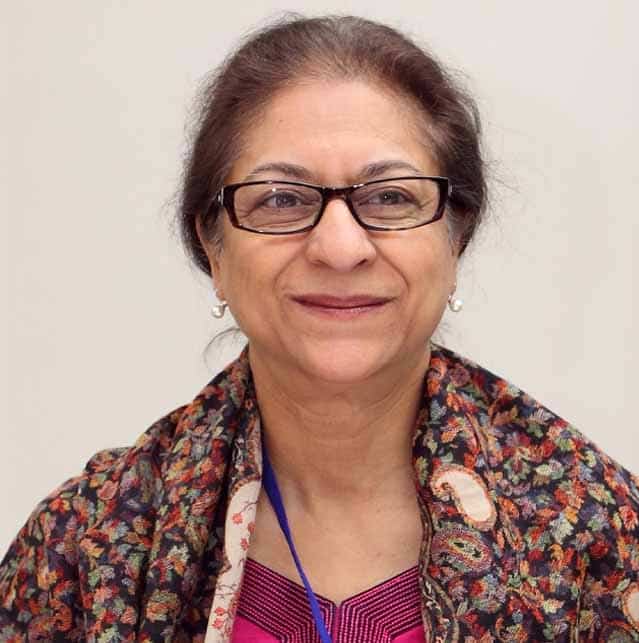
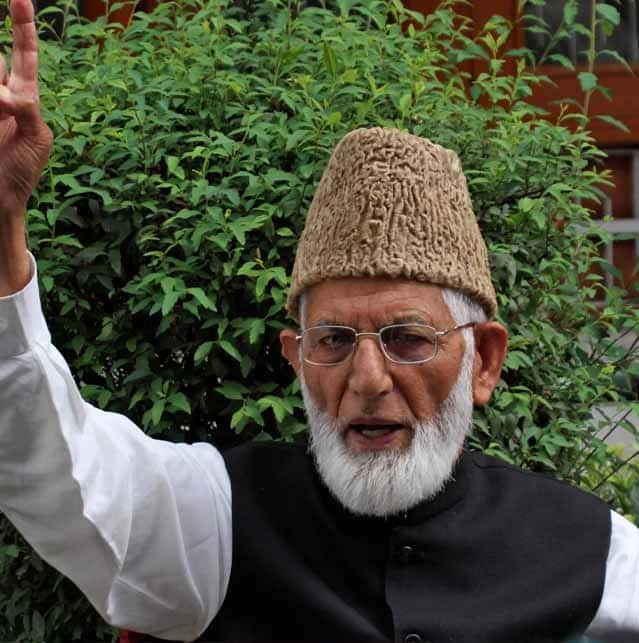
Rankings and Achievements:
In the global academic landscape, Punjab University has consistently made its mark. In the QS World University Rankings, it holds the 2nd position nationally (2015) and ranks 741-750 globally in 2024. The university’s commitment to various disciplines is evident in its rankings in Agriculture and Forestry, Physics & Astronomy, and Chemistry.
6. Aga Khan University
Aga Khan University (AKU), a non-profit institution and a pivotal agency of the Aga Khan Development Network, was established in 1983 as Pakistan’s pioneering private university. Since then, it has evolved into a multi-campus entity with a global footprint, including Kenya, Tanzania, Uganda, the United Kingdom, and Afghanistan.
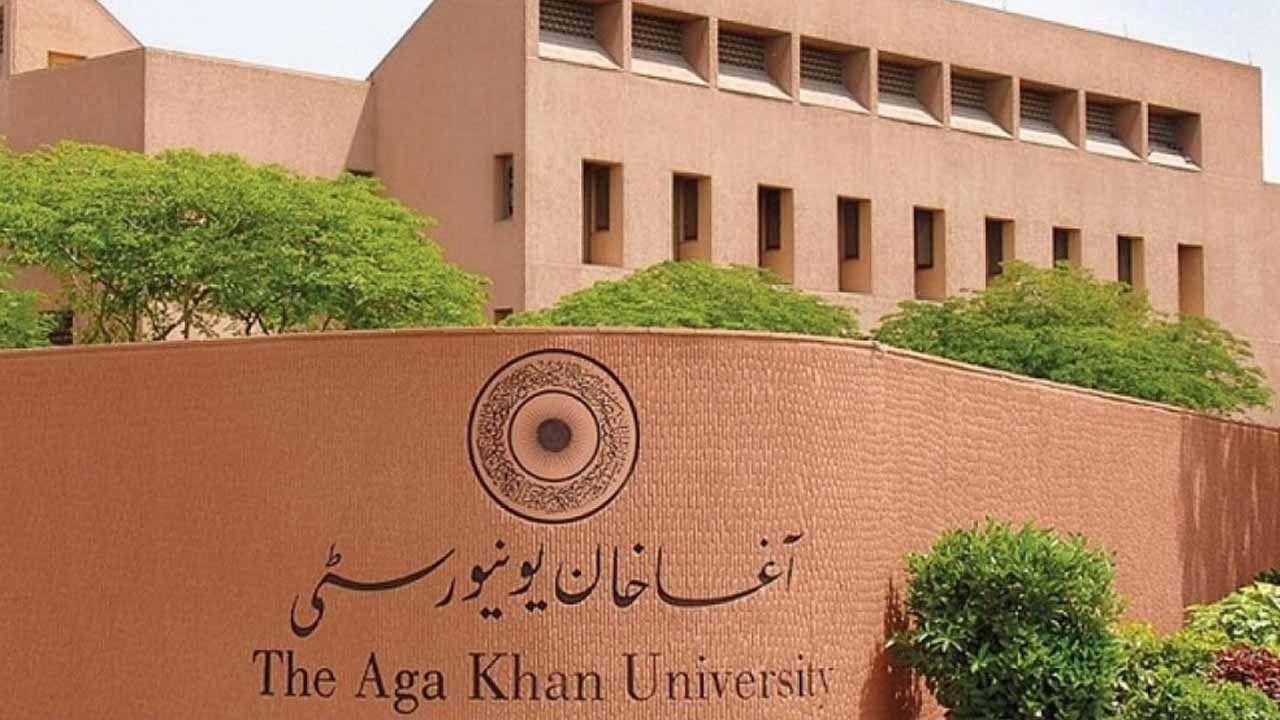
Academic Diversity:
AKU initially focused on health sciences but has diversified its academic portfolio. It is a major healthcare provider in Pakistan and East Africa, with hospitals accredited by the U.S.-based Joint Commission International. Furthermore, recent initiatives encompass teacher education, study of Muslim civilizations, journalism, early childhood development, and public policy. Plans include launching an undergraduate liberal-arts program and establishing additional graduate professional schools.
Academic Eminence:
- Contributes 75% of all biomedical research in Pakistan.
- Publishes more research articles in internationally recognized journals than any other Pakistani university.
- Maintains a strong emphasis on community-related health sciences research.
- Hosts international and national research workshops and seminars.
Global Presence:
Firstly, AKU operates on campuses across Central and South Asia, the African Great Lakes, Europe, and the Middle East. Notable campuses include Karachi, Nairobi, and London. Secondly, It is renowned for its sports and rehabilitation facilities, including an Olympic-standard swimming pool and cricket and football grounds.
Notable Alumni, Professors, and Staff:
- Professors and Staff:
- Abdul Gaffar Billoo: Pediatric endocrinologist, and professor at AKU.
- Marleen Temmerman: Chair of the Department of Obstetrics and Gynaecology at AKU Kenya.
- Notable Alumni:
- Hasan B. Alam: Renowned trauma surgeon in the United States.
- Saad Omer: Distinguished vaccinologist and Director of the O’Donnell School of Public Health.


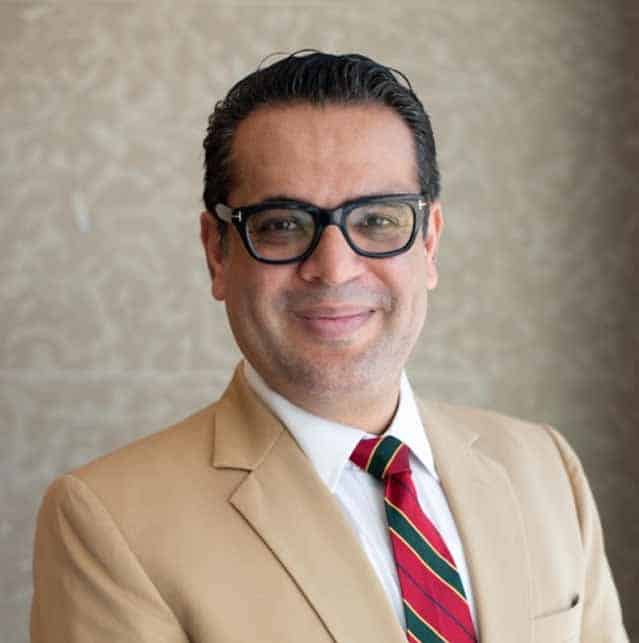
Awards and Accolades:
- South Asia’s first accredited Center for Innovation in Medical Education.
- Merit Award for Excellence in Planning from the Society for College and University Planning.
- MacJannet Prize for Global Citizenship 2009 for the Urban Health Programme.
- Zairi International Award in Higher Education 2022 for Disruptive Education.
- Hayat app awarded a silver medal at the international Digital Health Awards 2023.
7. University of Engineering and Technology
The University of Engineering and Technology, Lahore (UET Lahore), a leading public university in Lahore, Punjab, Pakistan, is renowned for its excellence in science, technology, engineering, and mathematics (STEM) subjects. Originally established on January 1, 1921, as Mughalpura Technical College, it evolved into the prestigious UET Lahore. Over the years, the university has maintained its prominence in STEM education.
Academic Prestige:
Firstly, UET Lahore is a sought-after institution, receiving over 50,000 annual admission applications. As of 2016, it boasted a faculty of 881, including 257 with doctorates. The university maintains strong collaborations with global institutions, such as the University of South Carolina and the University of Manchester.
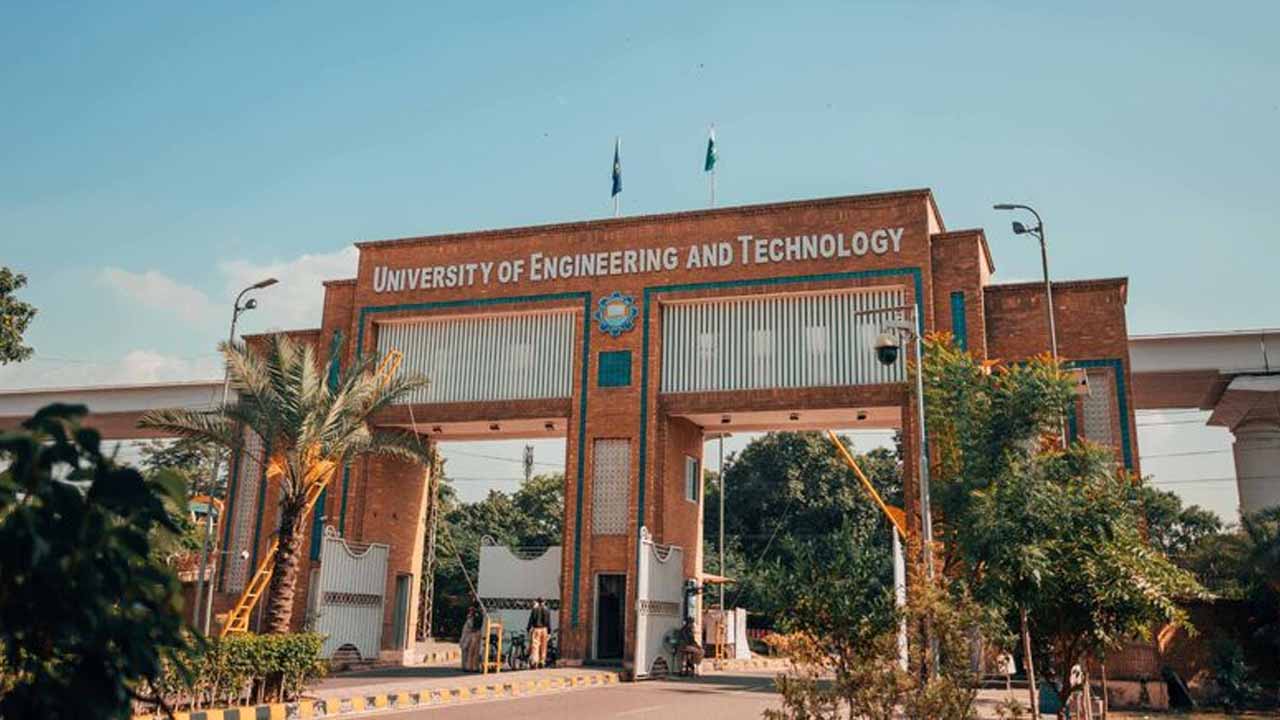
Rankings and Global Recognition:
- UET Lahore holds a prominent position in domestic rankings, standing as the third-best engineering school in Pakistan.
- Internationally, QS World University Rankings place it at 279th in Engineering & Technology in 2023.
- Notably, Computer Science is the most sought-after discipline.
- Despite challenges, UET Lahore has achieved global recognition, with QS World Rankings positioning it at 801-1000 in 2023.
- In the Asian region, it stands at 183, reinforcing its international academic standing.
Faculties and Departments:
Secondly, The university comprises faculties like Architecture and Planning, Chemical, Metallurgical and Polymer Engineering, Civil Engineering, Earth Sciences and Engineering, Electrical Engineering, Mechanical Engineering, and Natural Sciences, Humanities, and Islamic Studies. It also hosts research centers focusing on diverse fields.
Notable Alumni:
UET Lahore boasts a remarkable lineup of alumni who have excelled in diverse fields. Fawad Rana, Owner of Lahore Qalandars, and Parvez Butt, Former Chairman of Pakistan Atomic Energy Commission, exemplify the university’s influence in sports and scientific domains. Moreover, Junaid Jamshed, a religious scholar, and Ahsan Iqbal Chaudhary, a famous Pakistani politician. Engr. Mir Masood Rashid (Convenor, PEC Pakistan Development Committee), recipient of the PEC Engineers Excellence Award given by the President of Pakistan.



Co-Curricular and Extracurricular Activities:
UET Lahore fosters a holistic educational experience with a focus on co-curricular and extracurricular activities. Furthermore, It provides state-of-the-art sports facilities, diverse student societies, and a National Library of Engineering Science, contributing to students’ overall development.
Celebrating a Century:
In 2022, the government of Punjab commemorated the university’s 100th anniversary by issuing a commemorative coin and postage stamp, acknowledging its century-long contribution to education and research.
8. University of Peshawar
Established in 1950, the University of Peshawar (UoP) stands as a distinguished public research institution in Khyber Pakhtunkhwa, Pakistan. Widely recognized as Peshawar University, it is celebrated for its academic excellence and commitment to advancing knowledge. Furthermore, the institution is a key player in shaping the educational landscape of the region.
Academic Eminence:
UoP is one of the oldest universities in the province and holds a prominent position among the highest-rated institutions in Pakistan. In addition to, also, offering undergraduate, postgraduate, and doctoral programs, the university caters to approximately 14,000 students.
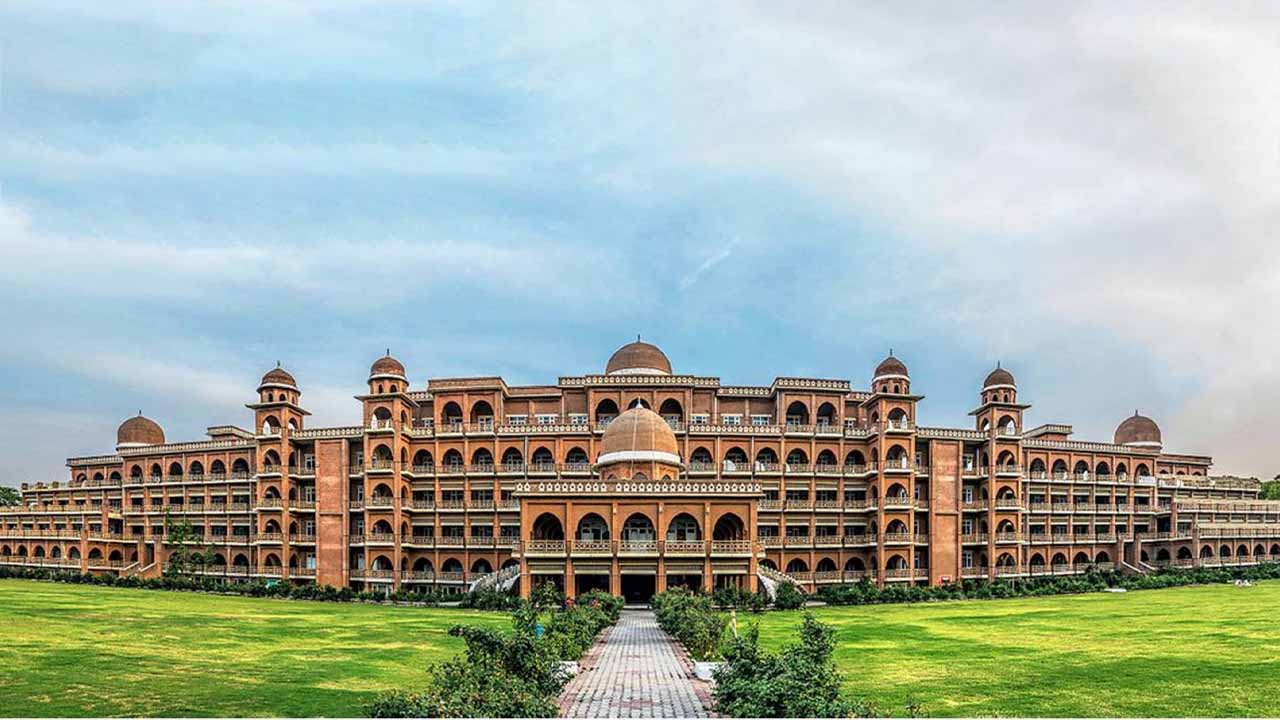
Historical Significance:
Founded as an expansion of Islamia College, UoP was envisioned by Muhammad Ali Jinnah, the founder of Pakistan. Jinnah, recognizing the college’s role in the nation’s creation, referred to it as ‘my college’ and considered it a significant heir to his legacy.
Academic Faculties and Centers:
The university comprises six academic faculties, housing forty postgraduate departments and two “centers of excellence.” Noteworthy research centers within the campus focus on social, medical, and natural sciences. In Addition, UoP is a recognized university accredited by the Higher Education Commission of Pakistan, conferring both undergraduate and postgraduate degrees.
Global Rankings:
UoP’s global standing is acknowledged, with a QS World Ranking of 801-1000 (2023) and a QS Asia Ranking of 197 (2022).
9. COMSATS Institute of Information Technology
COMSATS University Islamabad (CUI), formerly known as COMSATS Institute of Information Technology (CIIT), stands as a distinguished public university in Pakistan. Initially established in 1998 by the Commission on Science and Technology for Sustainable Development in the South (COMSATS), CUI has evolved into a multi-campus institution, with its principal seat located in Islamabad. Renowned for its focus on information technology, CUI has garnered acclaim. Moreover, it ranks 7th in Pakistan and 801-1000 globally in the latest QS University Rankings.
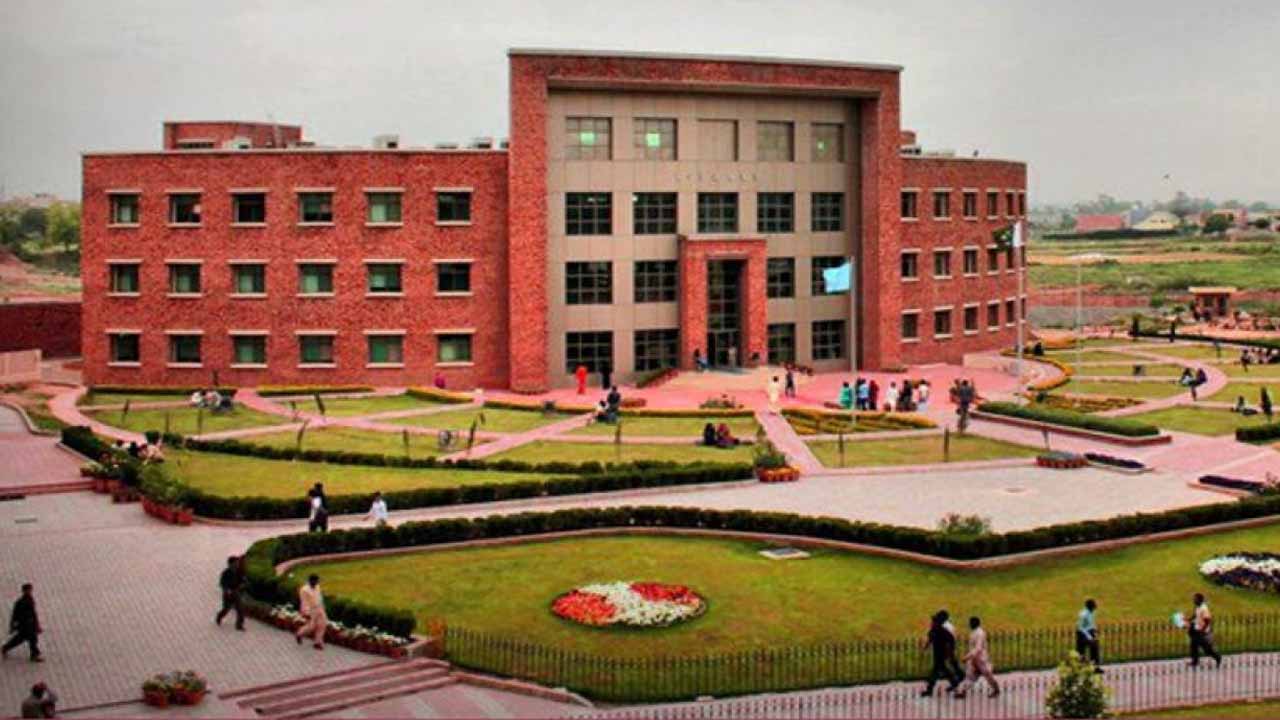
Academic Excellence:
- Recognized as Pakistan’s first exclusive Institute of Information Technology.
- Ranked among the top 250 Asian Universities by QS University Rankings in 2014.
- Tops national rankings in Computer Sciences and IT, 1st overall according to NatureIndex.
- Offers a diverse range of programs across 20 departments, producing over 315 Ph.D. graduates.
Academic Offerings and Research Contributions
Distinguished by its commitment to a diverse range of academic programs, CUI offers degrees across 20 departments, producing a notable number of Ph.D. graduates since its inception. Furthermore, The university has played a pioneering role in the field of information technology, earning recognition as a key player in the nation’s academic landscape.
International Rankings:
- QS World Universities Rankings 2020: 801-1000 globally.
- QS Asian Universities Rankings 2019: 135th.
- Shanghai Rankings 2019: 1st in Pakistan, 501-600 globally.
Notable Alumni:
Noteworthy alumni, such as Sadia Bashir, CEO of PixelArt Games Academy, and Aisha Mughal, a prominent transgender rights expert, underscore the university’s commitment to producing graduates who make meaningful contributions to society.
Global Collaborations:
In terms of international impact, CUI actively participates in global university rankings and demonstrates a strong commitment to the Sustainable Development Goals (SDGs). Collaborations with international institutions further enrich the academic and research landscape at COMSATS University Islamabad.
10. Government College University
Government College University (GCU), colloquially known as GCU, stands as a cornerstone of academic excellence in Lahore, Punjab, Pakistan. Initially established in 1864 under British administration, GCU transitioned to university status in 2002, subsequently becoming one of the ten largest educational institutions in Pakistan. With its historical roots and commitment to producing notable scholars, GCU has earned its place among the most prestigious universities in the country.
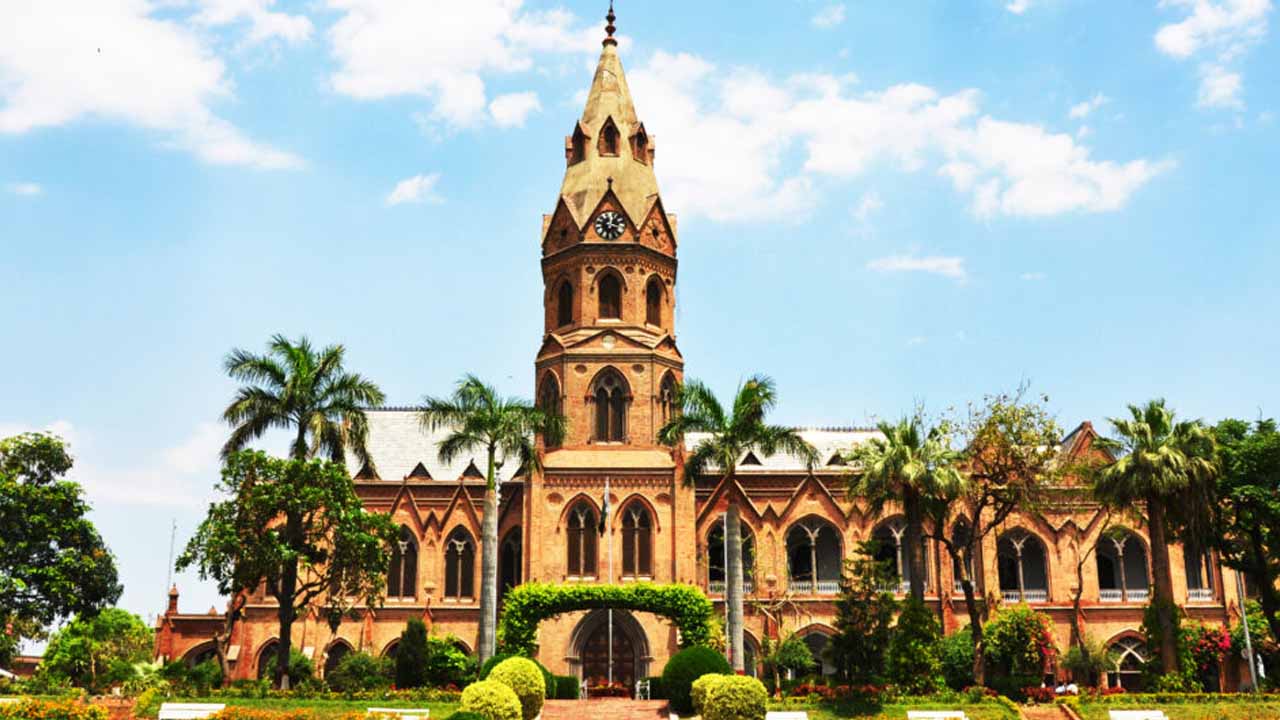
GCU boasts a rich history, originating as Government College in 1864. Achieving university status in 2002 marked a significant milestone, transforming it into a major educational hub in Pakistan. Moreover, The university is recognized for its diverse academic offerings, featuring 32 departments grouped into five faculties. GCU’s academic prowess is underscored by its second-place ranking in the general category by the Higher Education Commission (HEC) in 2013.
Campus:
Situated in Downtown Lahore, GCU’s campus is a blend of historical and modern architecture. The main building, designed by W. Purdon, stands as a testament to neo-Gothic tradition. The campus covers 56 acres along the Anarkali Bazaar, providing a conducive environment for learning and research. Additionally, the university expanded its reach with the inauguration of the Kala Shah Kaku campus in 2019.
Notable Alumni:
GCU’s alumni, known as Ravians, include prominent figures like Allama Muhammad Iqbal, Har Gobind Khorana, Abdus Salam, and Nawaz Sharif. The university has produced leaders, Nobel laureates, and influential personalities across various domains, showcasing the impact of its education
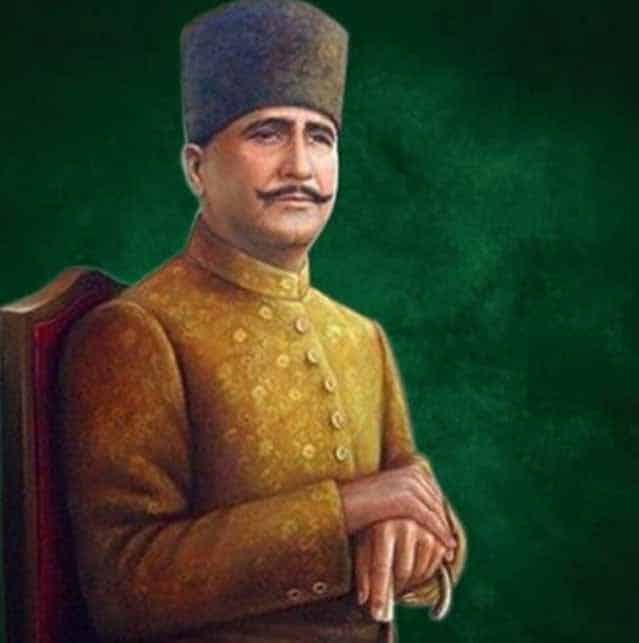


Academics:
GCU offers a spectrum of academic programs, including 28 bachelor’s degrees, 28 MS/MPhil degrees, and 19 PhD degrees across various faculties. The university’s commitment to research is evident through the Office of Research, Innovation and Commercialization (ORIC), which manages research programs and upholding international standards.
Institutes and Chairs:
GCU is home to several research-oriented institutes, including the Abdus Salam School of Mathematical Sciences and the Center for Advanced Studies in Physics. Furthermore, The university has also established honorary chairs, such as the Abdus Salam Chair in Physics and the Mahboob-ul-Haq Chair in Economics, recognizing contributions to their respective fields.






